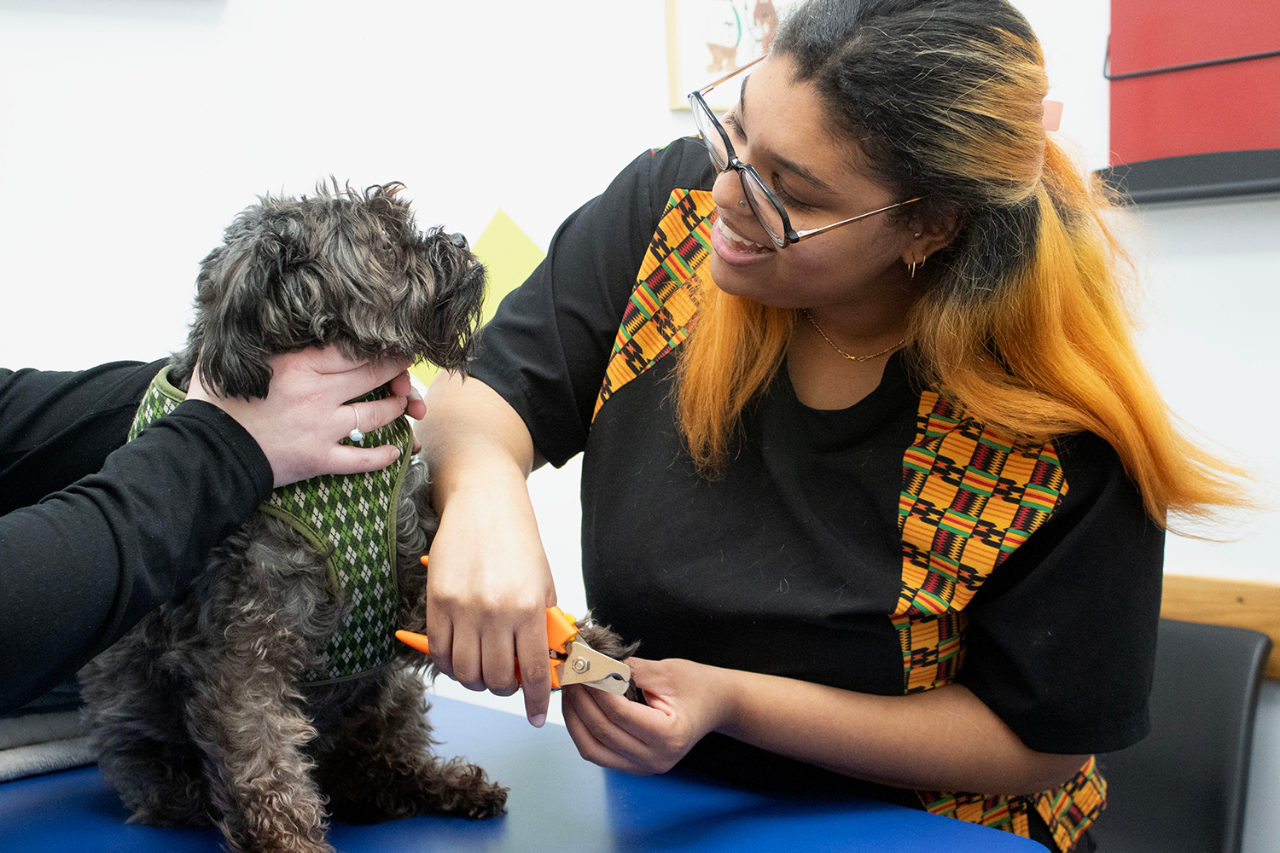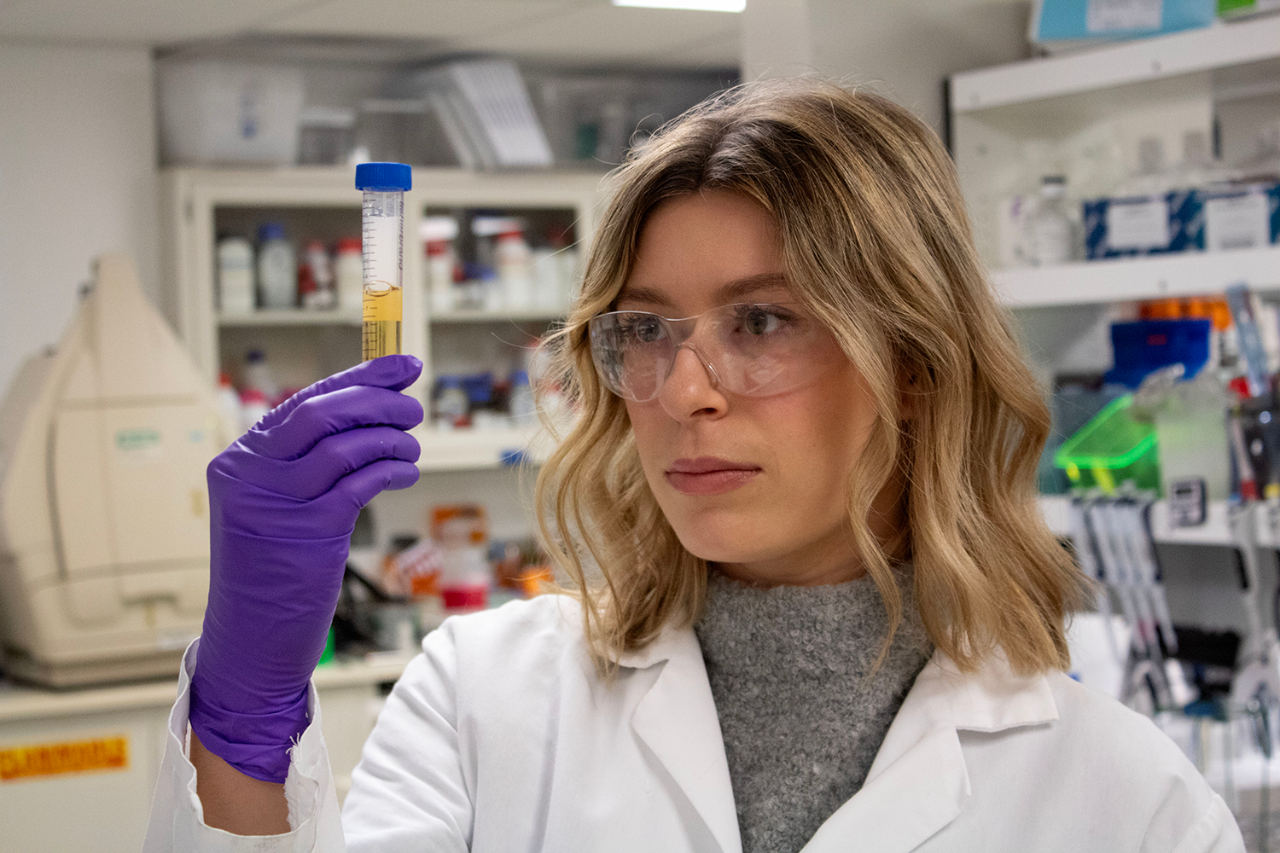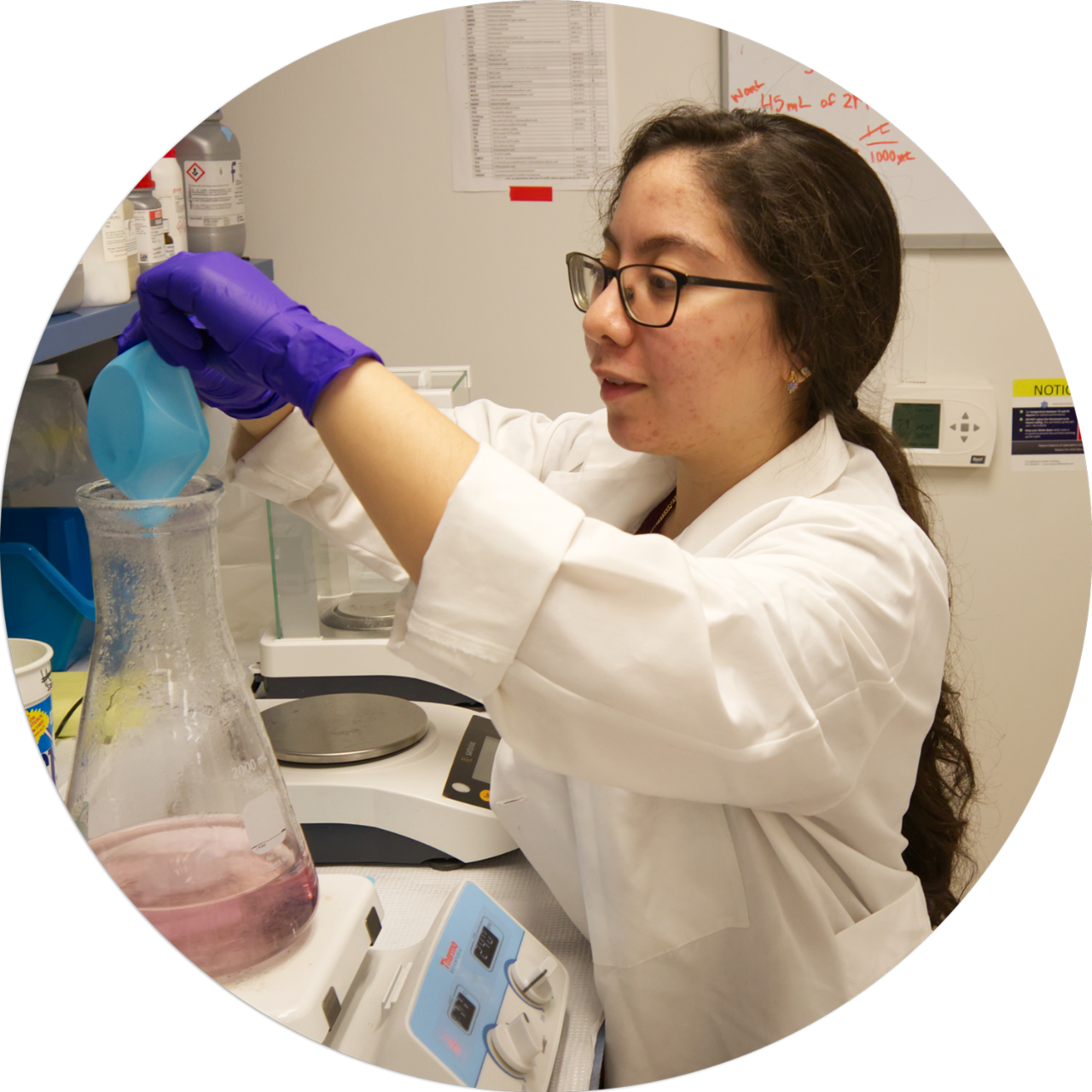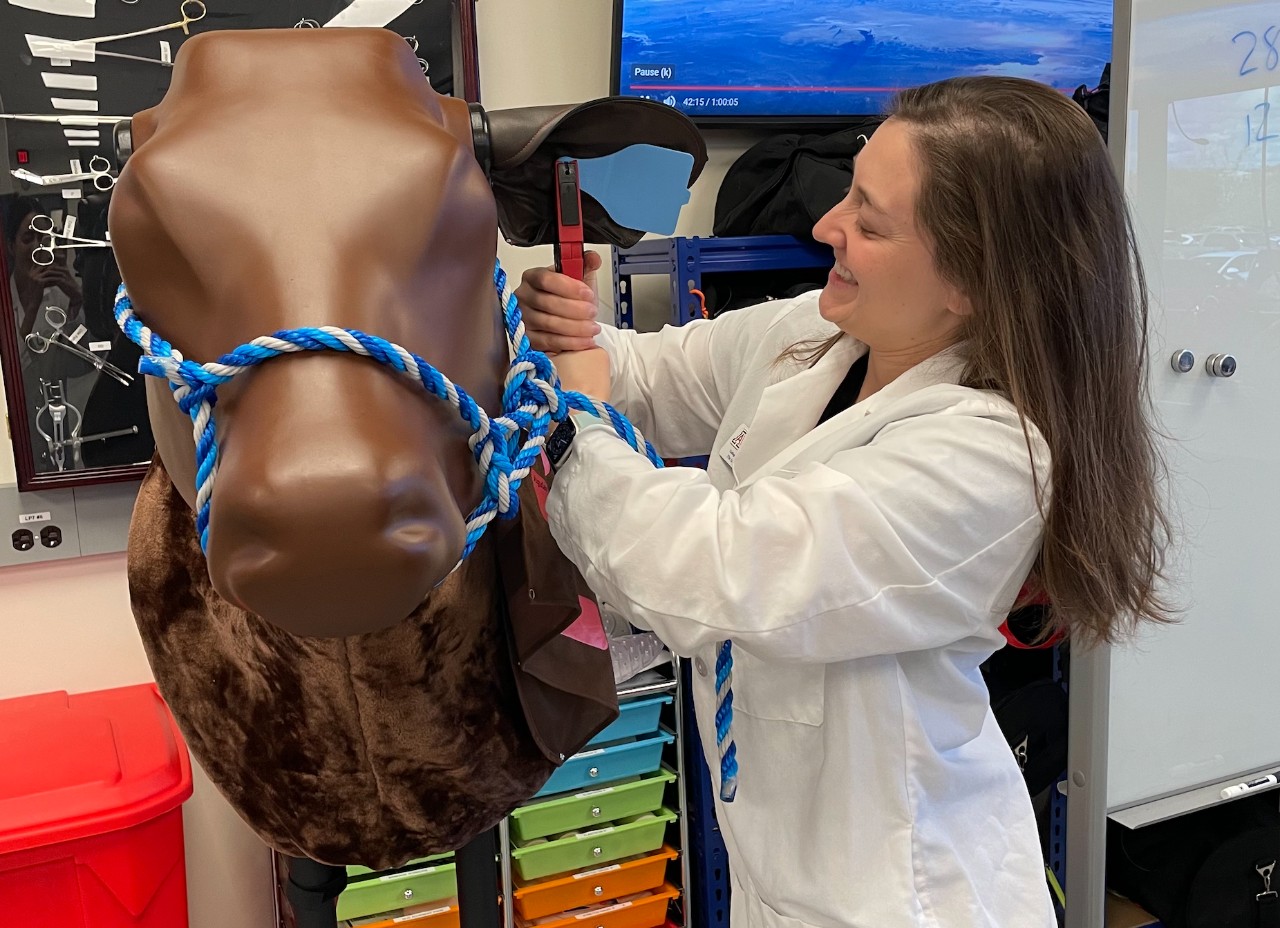

Animal Science at UD
Request Information About the Non-Thesis M.S. in Animal Science
Looking for an immersive graduate degree experience where you'll have an opportunity to work directly with animals? UD's Master of Science in Animal Science may be the perfect fit for you.
This opportunity is for both working professionals and recent college graduates looking to obtain admission into veterinary, medical or thesis-requiring programs.
Why study Animal Science at the University of Delaware?
This professional degree provides students with theoretical, technical, and practical training relevant to advancing career opportunities in animal science.
How is the Animal Science graduate program structured?
Students select a specialized course tract—veterinary biosciences, biotechnology, and one health (VBBOH), or business and entrepreneurial leadership (BELC)—and are assigned an individual faculty advisor. They complete the 30-credit degree program in 12-23 months.
Who are the best candidates for the Animal Science graduate program?
Admitted students often hold undergraduate degrees in animal science, biology chemistry, agriculture, or another related field.
12-24 months
Program duration
$1,116
Cost per credit
30
Credit hours
Students graduating with the Non-Thesis Master of Science in Animal Science will be more competitive for veterinary school or other advanced degree programs or may enter the workforce in an animal science or related field.
“Without UD, getting into veterinary school would’ve taken me much longer. And I might not have been accepted at all. UD gave me the leg up that I needed.”
- Gloria Andrade-Feraud
Animal Science Graduate Program Alumna

Veterinary Biosciences, Biotechnology, and One Health Concentration
Overview: This program provides hands-on technical training and research experience as well as extensive theoretical training in host-pathogen interactions, nutrition and immunology. This concentration is designed for individuals who would like to increase their competitiveness for veterinary school or other professional programs or their earning potential for positions in animal science related fields.
Students will:
- Expand their knowledge and skills in fundamental host-pathogen interactions, nutrition, and immunology;
- Acquire hands-on technical training in cell and molecular biology techniques as they relate to basic research, diagnostic, and clinical applications; and
- Acquire training in experimental design and data analysis.

Business and Entrepreneurial Concentration
Overview: This concentration provides graduate students with tools and skills for pursuing a science-related career in industry, government, service, non-profit, Cooperative Extension or other fields related to the animal and/or food sciences. Professionals seeking additional training can use this concentration to enhance their core competencies in an ever rapidly evolving job market.
Students will:
- Expand knowledge and skills in the animal and food sciences;
- Acquire knowledge and skills in areas of leadership, organization, project management, organizations and entrepreneurship; and
- Apply knowledge through design and completion of a problem-solving project.
"My first experience with large animals was at UD. It helped me to see veterinary work as something possible for me. My professors were excited to teach, and they went so in-depth with the material that some of my veterinary school classes felt like a broad overview."
Gisselle Garcia
Animal Science Graduate Program Alumna


